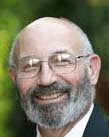Credit rating firms are like cancer to the financial system
If the mortgage meltdown teaches us anything, it's that the work of these agencies isn't worth the paper it's on. Yet eradicating their influence may be the toughest regulatory challenge we face.
Michael Hiltzik
April 2, 2009
The chilling realization that some things in high finance will never change, notwithstanding the current crisis, came to me the other day when I discovered that the Federal Reserve would accept only AAA-rated securities as collateral for its new program to finance consumer loans.
On the surface this seems only prudent -- after all, what could be more gilt-edged than paper given a top investment grade by two of the three most-recognized credit rating agencies, as the Fed demands?
But the problem isn't the ratings. It's the raters. If the mortgage meltdown teaches us anything, it's that the work of the credit rating companies isn't worth the paper it's scribbled on.
The slipshod performance of these firms -- Moody’s Investors Service and Standard & Poor’s Ratings Services are the largest by far -- was a major contributing factor to the crisis. Yet the raters are so deeply embedded in the financial system that eradicating their pernicious influence may be the toughest regulatory challenge we face.
"They're like a cancer that's spread throughout our law, our banking regulations, our securities regulations, our insurance regulations," Frank Partnoy, who dealt with derivatives as an investment banker and now teaches law at the University of San Diego, told me this week.
By order of the Securities and Exchange Commission, for example, money market funds can't invest in paper below a certain rating. Institutional investors such as pension funds are often barred from buying bonds below a certain grade.
That means a rating firm's word can determine whether the market for a bond is huge or minuscule. For corporate issuers, a top credit rating is money in the bank because it means lower borrowing costs.
For investment managers, the ratings provide cover for half-baked decisions: If you blow a billion for a pension fund on a bad bond issue, you can always point to the AAA grade it got from Moody's or S&P (or both) and say, "Don't blame me."
Yet the rating process is shot through with conflicts of interest. The agencies get almost all of their income from fees for rating securities, and those fees are paid by the issuers of those securities. As a result, the raters are wary of giving low grades, fearing customers will get ticked off and take their business to a competitor that might be more, shall we say, flexible.
In a 2007 internal memo unearthed by the House Committee on Oversight and Government Reform, a Moody's executive wrote that the firm had been struggling for years to balance the quest for market share with the need to preserve the quality of its ratings.
The problem it kept running into was that the clients -- i.e., the issuers -- didn't want "good" ratings; they wanted high ratings. “Ratings quality has surprisingly few friends,” the executive wrote.
Issuers learned they could game the process by jawboning the agencies or applying a thin layer of rouge to junk securities. Partnoy, in his book about his Wall Street career titled "F.I.A.S.C.O.," tells of using some creative cosmetics to get an AAA rating from S&P for an investment trust that largely held bonds of a graft-ridden Philippines power company. (S&P eventually backed off the rating, but not by much.)
These practices contributed mightily to the disaster epic known as the mortgage-backed securities market.
Billions of dollars of mortgage bonds were blessed with AAA ratings even though the agencies hadn't looked closely at the underlying home loans, much less reevaluated them after home prices topped out. According to congressional testimony and documents, the firms often simply plugged into their rating formulas the representations about loan quality they were given by the issuers -- including such upstanding lenders as Countrywide and IndyMac.
The agencies try to defend this system. They take fees from issuers, they say, because that allows them to make all their ratings public without charging a subscription. They note that they downgraded mass quantities of mortgage securities as soon as the problems in the market emerged. (Critics contend they should have identified the problems before the rest of the world knew.) The firms say they're only giving opinions about creditworthiness, and shouldn't be blamed for "unanticipated developments in the markets," as a Moody's man told the House committee.
Partnoy and others say the financial system would be well-served by stripping the agencies of their regulator-endorsed authority. "No one has been as wrong as they were," he says, "yet we continue to rely on them."
Among the options to replace them, he suggests, why not try the markets, which have been much better at gauging the credit risk of bonds and other securities?
An investment manager might be limited to buying securities with market interest rates no more than a certain number of percentage points above the yields on bonds of known risk, such as Treasuries. The change would force investors to use their own judgment, rather than outsourcing it to S&P and Moody's.
Indeed, many leading institutional investors weaned themselves from official ratings years ago. One investment executive told Moody's in 2007 (according to another memo published by the House committee) that people who accepted the firm's ratings were "sucker" investment managers.
That's some endorsement. Now if only the Federal Reserve would get the message.
Michael Hiltzik's column appears every Monday and Thursday. Reach him at michael.hiltzik@latimes.com.



































